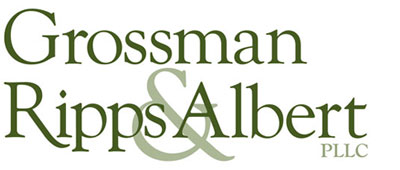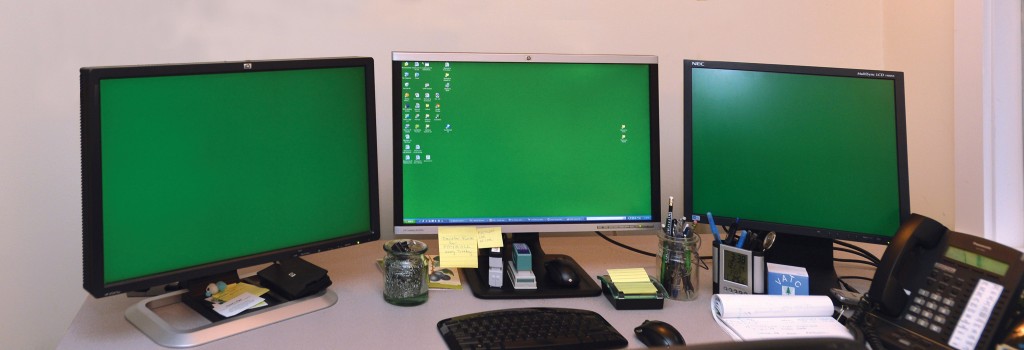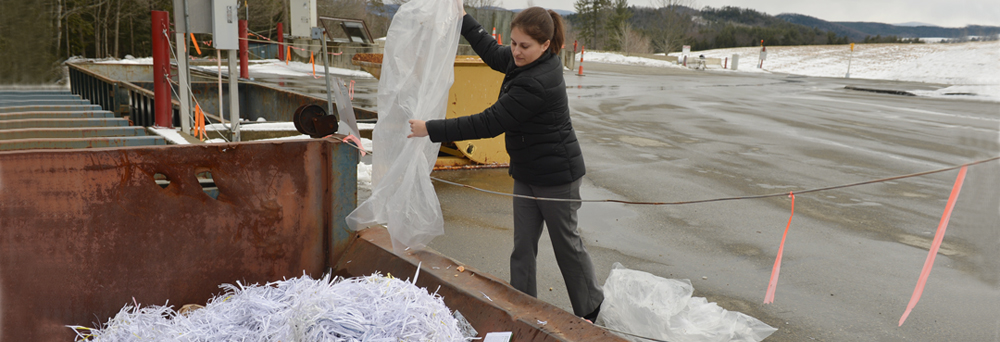Our Paperless Practice
Our office is paperless partly because it represents the future, but mostly because it allows us to more efficiently serve our clients.
The tools that support the paperless operation at Grossman Ripps & Albert include multiple computer screens on every desk, as well as tablets and laptops for note-taking during meetings with clients.
Paper is the way people did business for thousands of years. But this is the 21st century, and paper is being supplanted by pixels. Our office has been a pioneer in the conversion to paperless operation. We began that transition in 2002, and we have been fully paperless since 2006. We engaged dozens of high school and college students to scan every document in nearly 40 file cabinets full of client records — so much paper that we had run out of on-site storage space. We subsequently donated all those file cabinets to local schools.
And now, all our client documents (and business records) are stored on hard-drives with not just double or triple but quadruple backup — on-site, off-site, and in the cloud. In the old days, one worried about fire or flood ruining client files, but those concerns are no longer an issue in our office. In addition, we purchased a high-end inverter generator, suitable for use with electronics, so even if the power goes out we are still able to access our clients’ files and keep the whole office running, including our sophisticated computer system.
We made the commitment to this transition primarily because it makes our office so much more efficient. It allows us to serve our clients faster, better, and more economically.
Each workstation in our office now has from three to six monitors to replace all the piles of paper that used to clutter every desk. The multiple monitors can display PDFs of documents from several different files at the same time, as well as online statutes and our calendar and e-mail windows. When clients call with a question about a past transaction, even one that took place decades ago, we can have everything from that file in front of us within less than a minute.
Grossman Ripps & Albert also made the commitment to being paperless because we believe it is more environmentally friendly. For the same reason, we are committed to recycling all the plastic, glass, cans, cardboard, and paper that pass through the office. Yes, paper. Running a paperless practice means that we don’t store client records on paper; however, some documents still have to be printed on paper, and we still must handle incoming paper, since not everyone we deal with is paperless. But every scrap of paper pertaining to our practice (down to Post-it notes and envelopes from incoming mail) is shredded to ensure client confidentiality — and then brought to the regional recycling center, because we feel better not sending even our office’s relatively small amount of paper to the landfill.
Our firm’s commitment to recycling is so strong that it’s sometimes one of the practice’s lawyers who makes the weekly trip to the regional recycling center with the office’s cans, bottles, and shredded paper. Here, Markell Ripps empties a bag of shredding into a bin — far less than the paper waste generated by many offices, thanks to the practice’s paperless systems.


